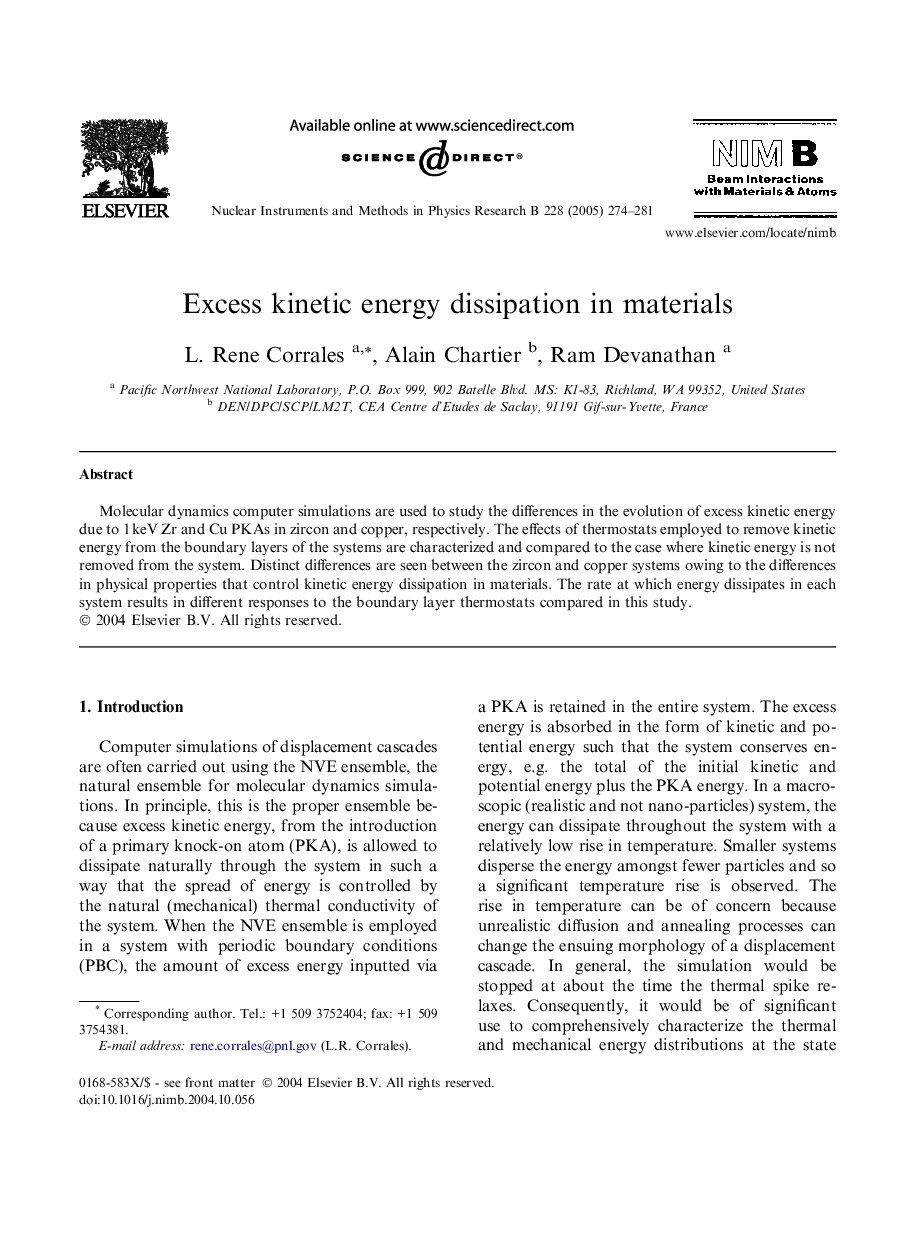| Article ID | Journal | Published Year | Pages | File Type |
|---|---|---|---|---|
| 9818417 | Nuclear Instruments and Methods in Physics Research Section B: Beam Interactions with Materials and Atoms | 2005 | 8 Pages |
Abstract
Molecular dynamics computer simulations are used to study the differences in the evolution of excess kinetic energy due to 1Â keV Zr and Cu PKAs in zircon and copper, respectively. The effects of thermostats employed to remove kinetic energy from the boundary layers of the systems are characterized and compared to the case where kinetic energy is not removed from the system. Distinct differences are seen between the zircon and copper systems owing to the differences in physical properties that control kinetic energy dissipation in materials. The rate at which energy dissipates in each system results in different responses to the boundary layer thermostats compared in this study.
Related Topics
Physical Sciences and Engineering
Materials Science
Surfaces, Coatings and Films
Authors
L. Rene Corrales, Alain Chartier, Ram Devanathan,
